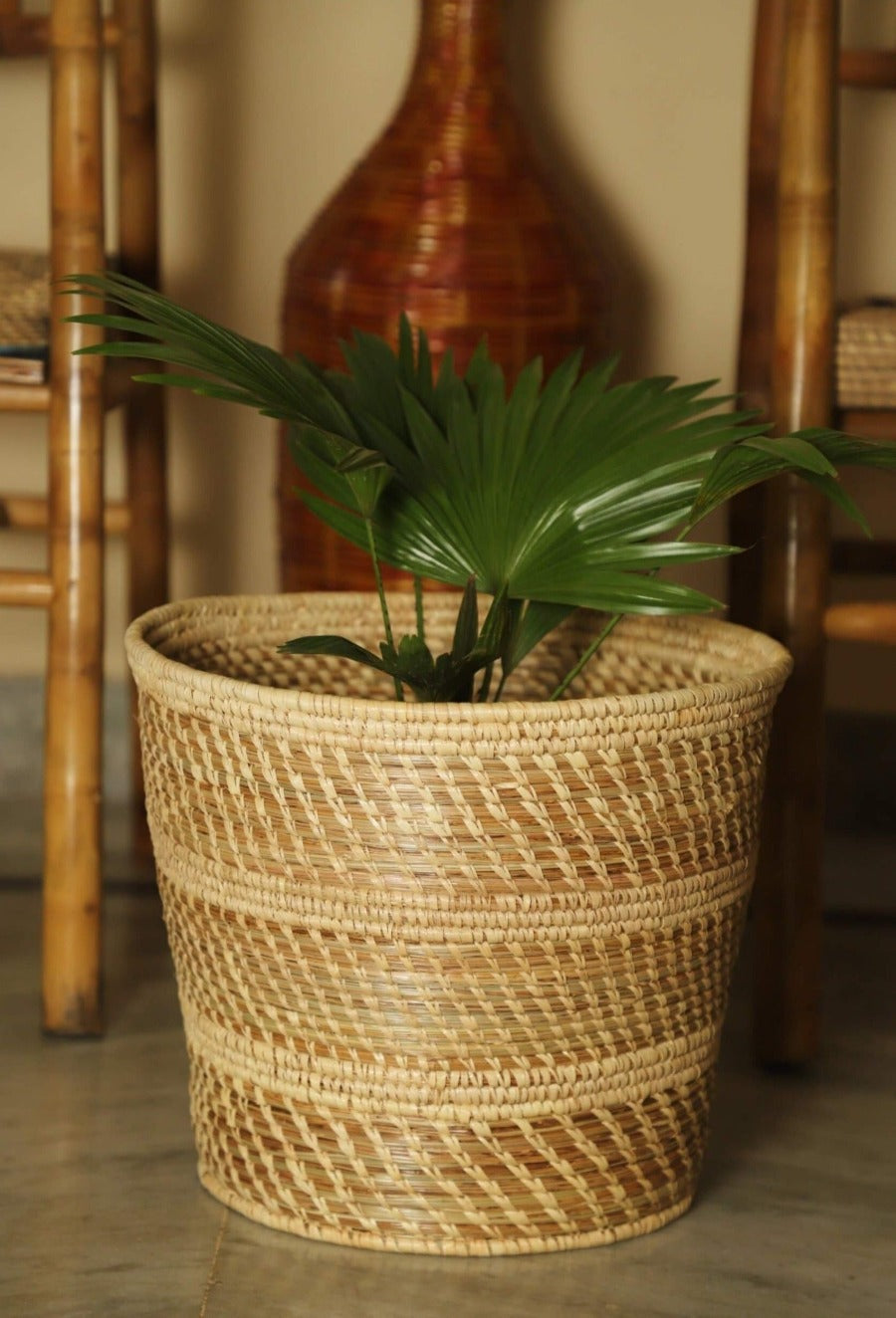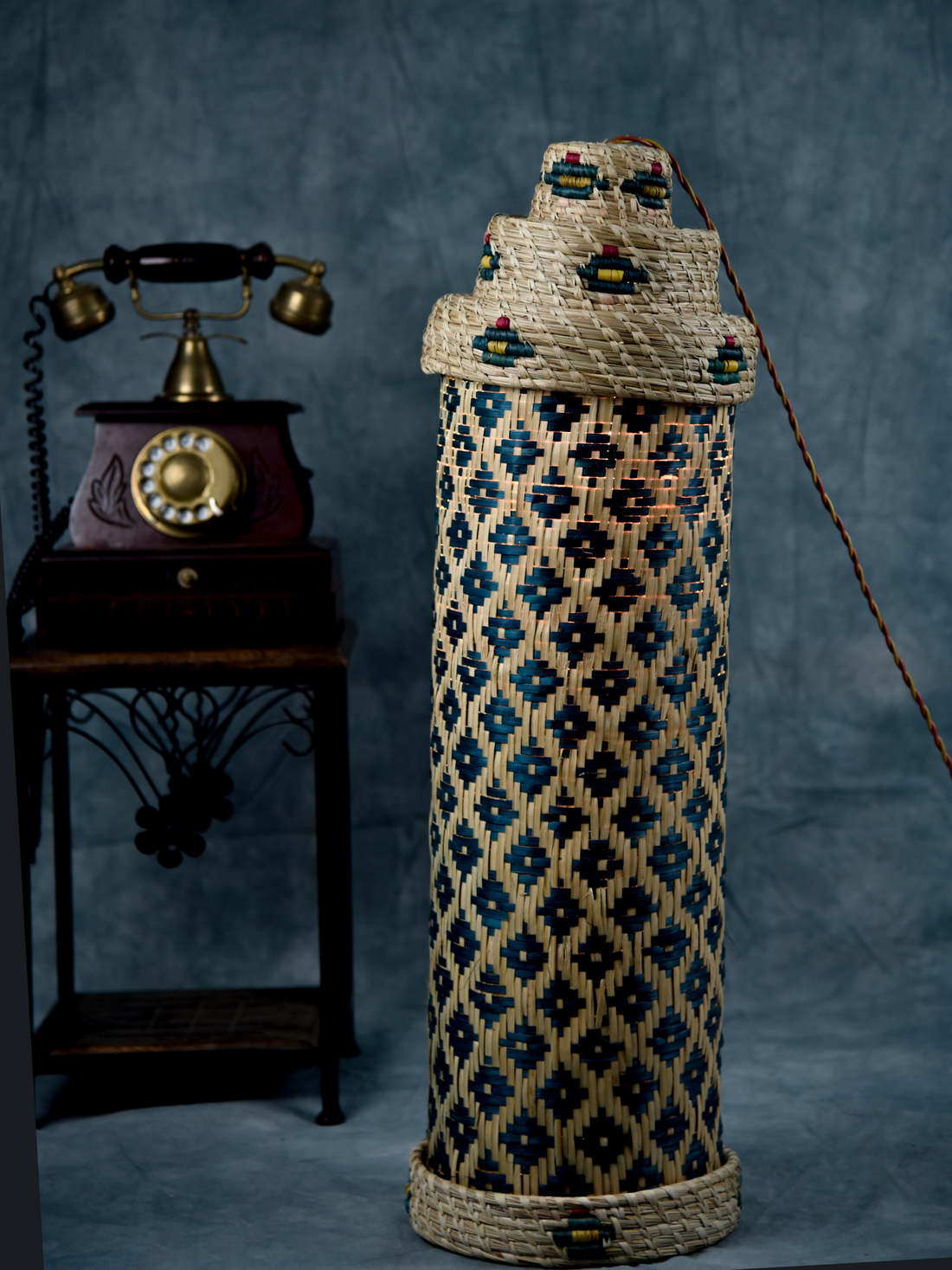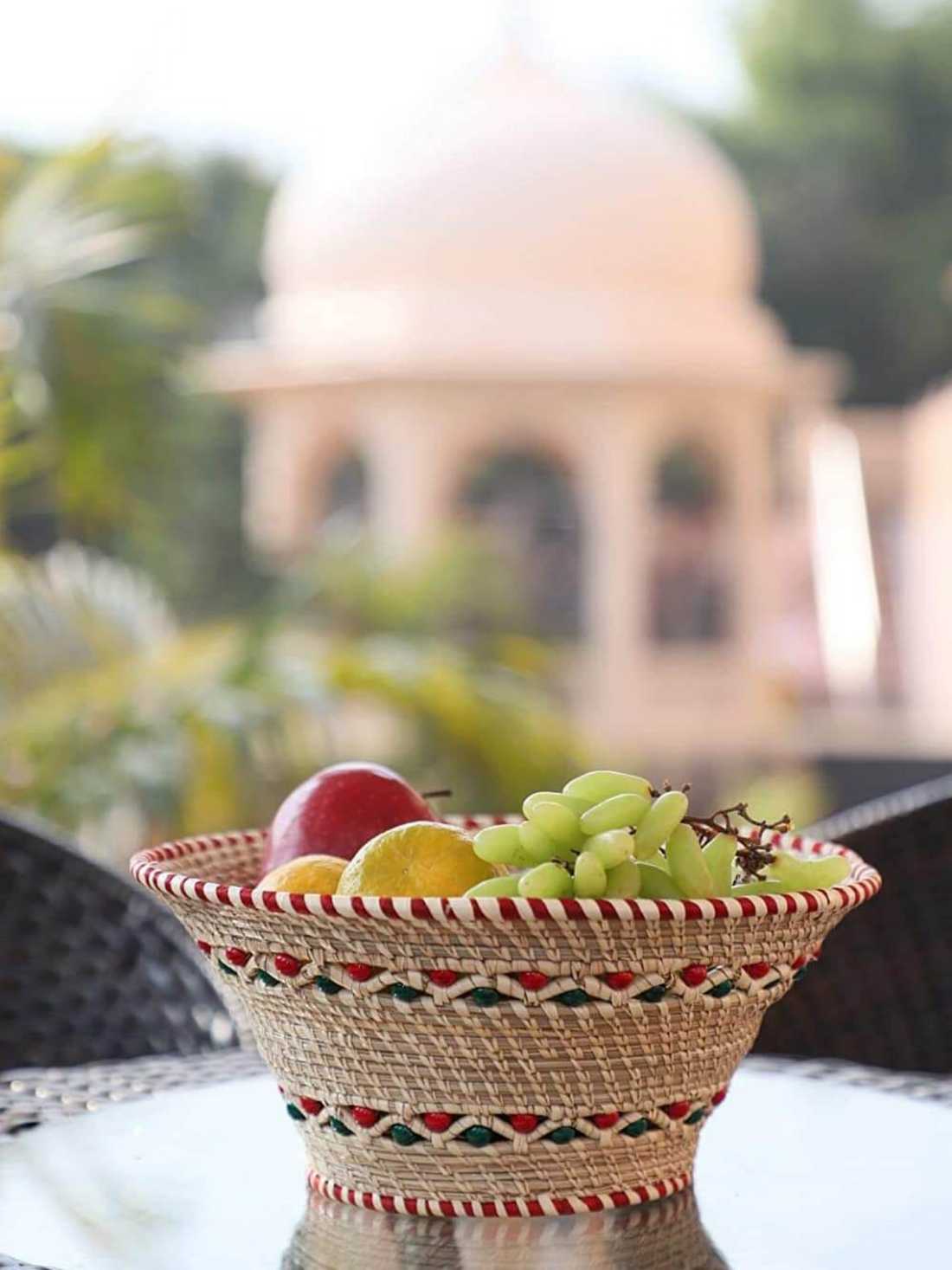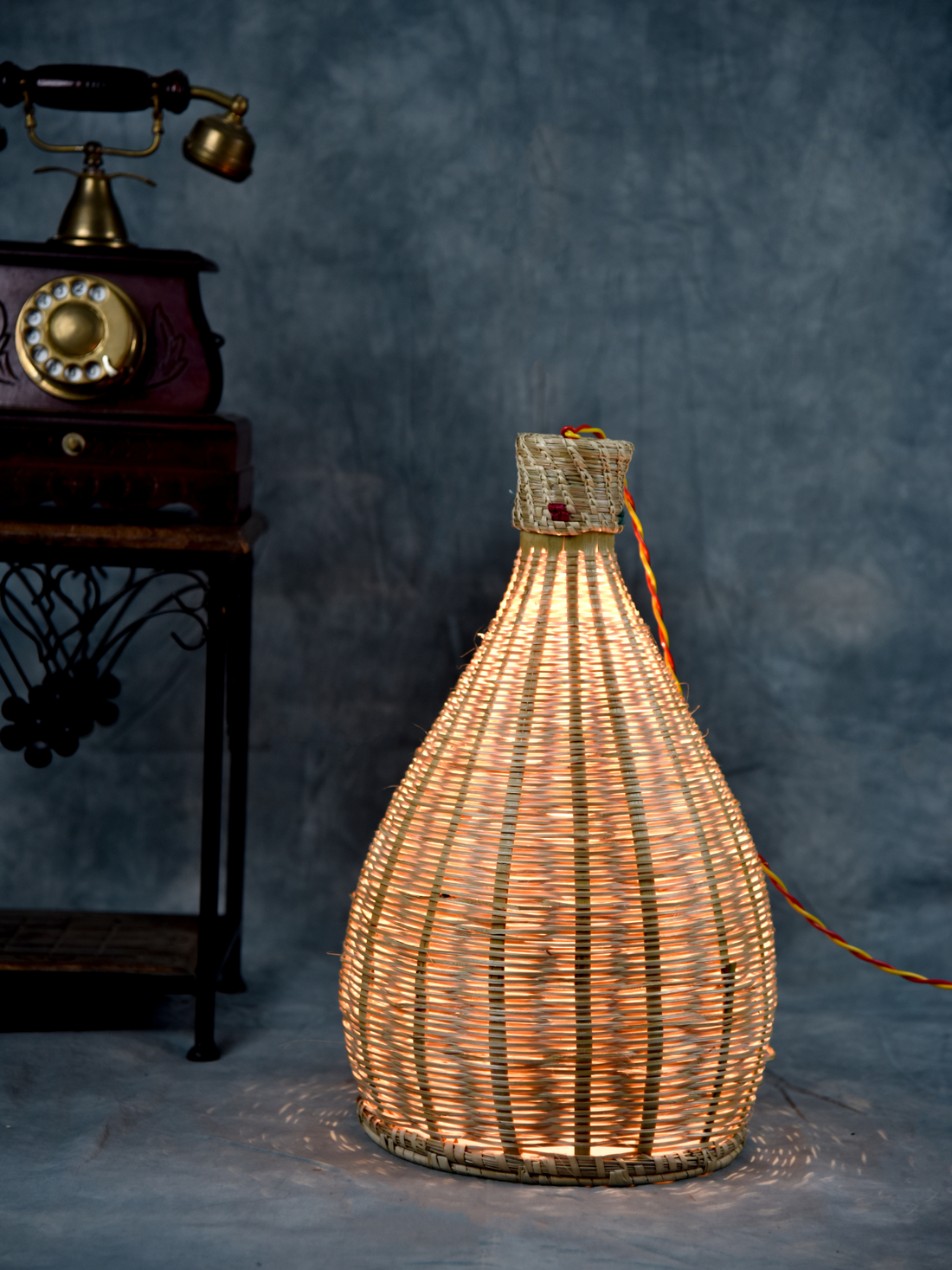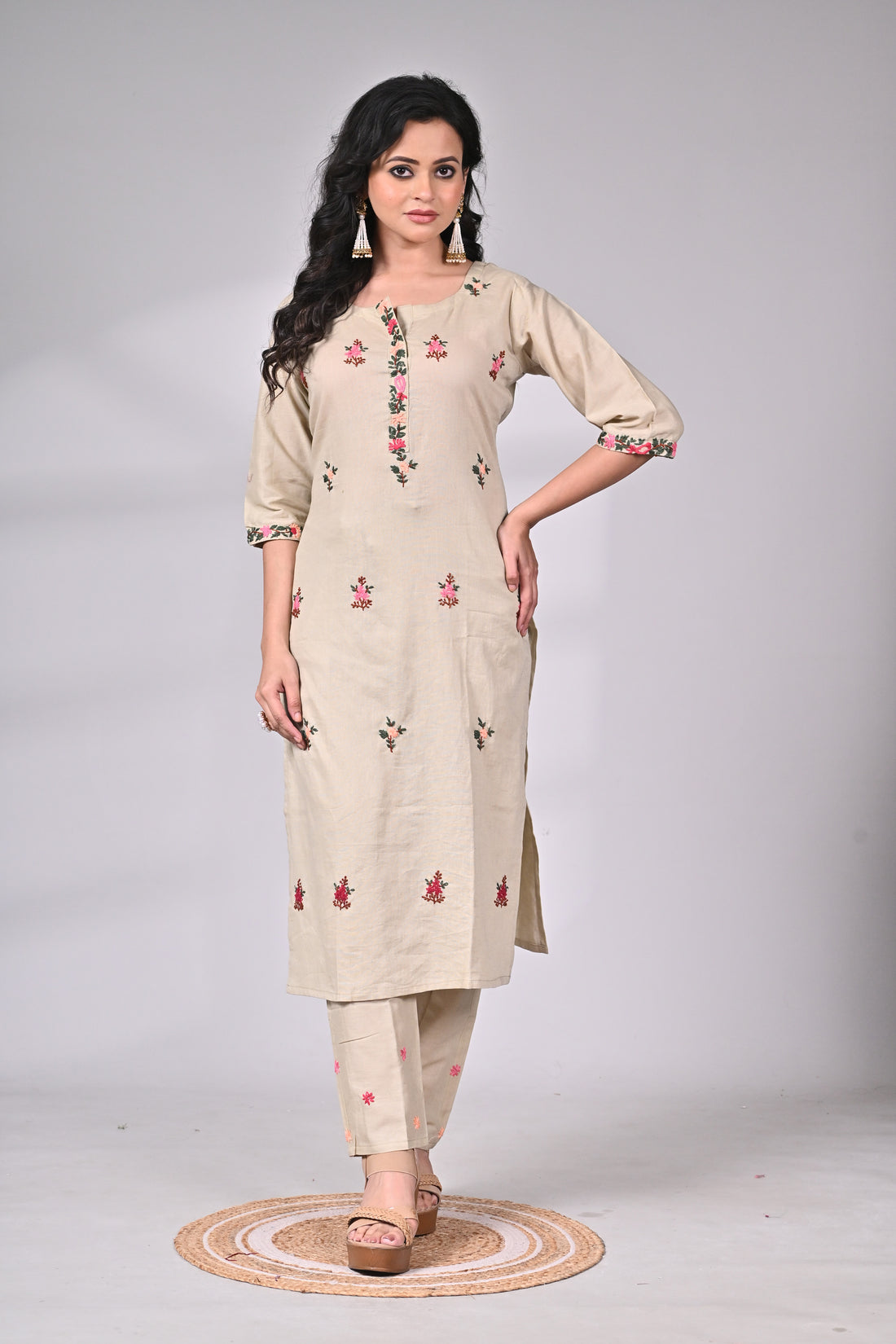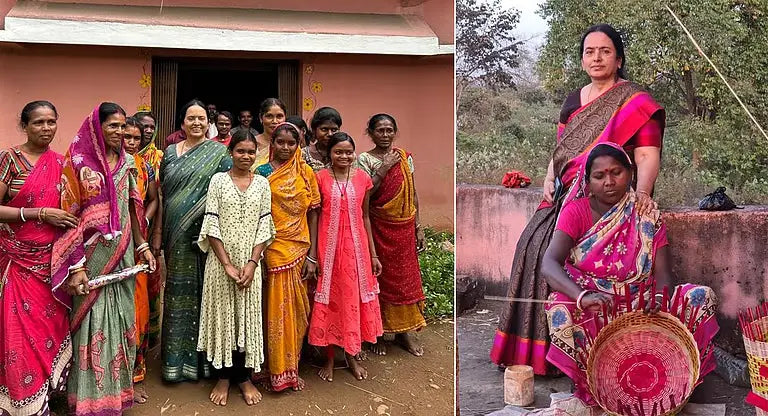
Brand Story
The ‘Mother’ of Sabars
The ‘Mother’ of Sabars
JHARKHAND: Deep inside the Jharkhand forests, Sabar & Mahli tribes live, secluded and deprived of their rights. A former collector forayed into their villages, determined to improve their lot. Today, she is ‘Maa’ for them, finds Mukesh Ranjan.
Over 300 households of the Sabar tribe, notified as the only Particularly Vulnerable Tribal Group out of the total of 32 tribal communities in Jharkhand, address Suchitra Sinha as ‘Maa’ or mother. For Sinha, who started her career as a deputy collector at Jamshedpur in 1996, this is something to gloat about, as the tribal community does not always welcome government officials in their area.
But this did not happen overnight. Sinha has worked hard with dedication to uplift the lives of the Sabar and Mahli tribes. She offered them a platform to showcase their weaving skills, to create lampshades, pen holders, baskets and more.
Today, they are not only surviving but thriving, owing to the compassion and years of hard work extended by Sinha, who retired as an IAS officer in September 2019 but continues to work with them.
For her efforts, Sinha was conferred with the ‘Women India Transforming Award’ in 2022. The award is given jointly by the Niti-Aayog and the United Nations.
Recalling her journey, Sinha said it all started in 1996 when she was posted as a programme officer for the development of children and women in rural areas in Jamshedpur, which now comes under Saraikela-Kharasawan district, considered to be the most backward district of India. A priest from Bharat Seveshram Sangh, who used to visit her office, informed her about the Sabar community, which is so poor that they feed on dead animals, and whose population is dwindling.
“During a programme in December that year, I visited villages under Neemdih block of Saraikela to see them and found that their condition was extremely bad. They were living in utter poverty — half-naked, malnourished and many of them suffering from rickets and other diseases,” recollected Sinha. Out of the 32 tribal communities in Jharkhand, the Sabar communities was the poorest among the poor.
Sinha was also informed that since they were landless, they could not farm. “I enquired more about them and found that the entire community is involved in making brooms and baskets out of bamboo and ‘kansi’ grass and sold them in the local market to earn a meager Rs 300-500 a month.
Though I could not do anything for those tribals at that moment, I often used to think about how their lives could be improved. I was transferred to Delhi and fortunately got know that there is an office of development commissioner (handicraft), which is devoted to handicraft development,” said Sinha. She met the officer, who was glad to hear that someone wanted to work for the Sabar tribe, and asked her to submit a project report in this regard.
Subsequently, she was given five projects in 1998. Later she contacted students of the National Institute of Fashion Technology and convinced five people to work on the development of traditional handicrafts.
“As a result, the first design workshop for handicraft development was organised in 1999 by five designers, who trained 50 local artisans of Sabar tribe at the Bharat Sevashram Ashram. This gave way to 135 prototypes within a month. Those prototypes were appreciated by the development commissioner, which encouraged me to move further in this direction,” said Sinha. Her family was not quite appreciative of this, but she had already developed a connection with the tribals and worked to improve their lives.
“Later, I came across a senior Planning Commission official who looked after the Naxal eradication programme in Jharkhand. Since there were no takers for the job in the region, he was happy to hear that I was keen to work in the state,” Sinha said.
A six-month programme was undertaken in the region. A new model was developed, under which a vehicle was sent to their villages to bring the tribals to the centre for training. They were provided with breakfast and lunch, as well as light refreshments before being dropped back to their villages. This proved to be very effective. They were also given a weekly stipend.
“To lure them to the center, they were also given non-vegetarian food for a week, which further improved the attendance. It was so effective that they drove out Maoists from their areas,” said Sinha.
In 2002, some local women started an NGO to work for the Sabar tribe. The NGO, mentored by Sinha, was titled Ambalika, which means ‘mother’. Ambalika was offered a project by NABARD, which continues and has proved to be a great help to the locals.
Now, in order to make the Sabar tribe independent and self-sustaining, Kraftribe Producer Company has been formed with 216 people from the same community as its shareholders. This also included the Mahli tribe, which is also a very backward community involved in bamboo craft.
For her efforts, in 2022 Suchitra was conferred with Women India Transforming Award given jointly by the Niti-Aayog and the United Nations.
“When I was asked what my biggest achievement was, I told them that villages where people do not want any government official to set foot, call me Maa,” said Sinha.
The tribal artisans say she has given them a dignified and respectful life. “Earlier, there was no one to take care of us. We were left to die even by the government. I have been associated with Maa as an artisan since 2012. I make more than Rs 5,000 a month, which is 10 times more than what I was earning before joining the organisations,” said Lalita Mahli.
They are making more than 40 products out of kaansi grass and bamboo, she said. Another artisan associated with Ambalika, Aduri Mahli, said that the products made here are sold at various stalls set up inside and outside the state, besides displaying them at various craft fairs. Artisans are given training from time to time to upgrade their skills regularly, she said.
Srikant Sabar, an artisan also associated with Kraftribe Producer Company, informed that several items like tissue box, basket, bags, lampshades and several other products are made here.
According to CEO of Kraftribe Producer Company Mahendra Mahli, women associated with the company are making up to Rs 5,000 a month. The artisans make about 104 items, including planters, bags, paper holder files, lampshades and more, he said. Mahendra further added that Suchitra Sinha is revered as no less than a mother to the people.
“Most surprisingly, the region where people don’t want to see any outsider, call her mother. They also worship her by placing her photograph on their walls along with their deities,” said Mahendra Mahli.
That is true. One can find her photograph in the households of Sabar and Mahli tribes in Saraikela.
MORE POWER TO WOMEN
In 2002, some local women started an NGO, Ambalika, mentored by Suchitra Sinha, to work for the Sabar tribe. To make the Sabar tribe financially independent, the NGO formed Kraftribe Producer Company with 216 people drawn from the community as the company’s shareholders

